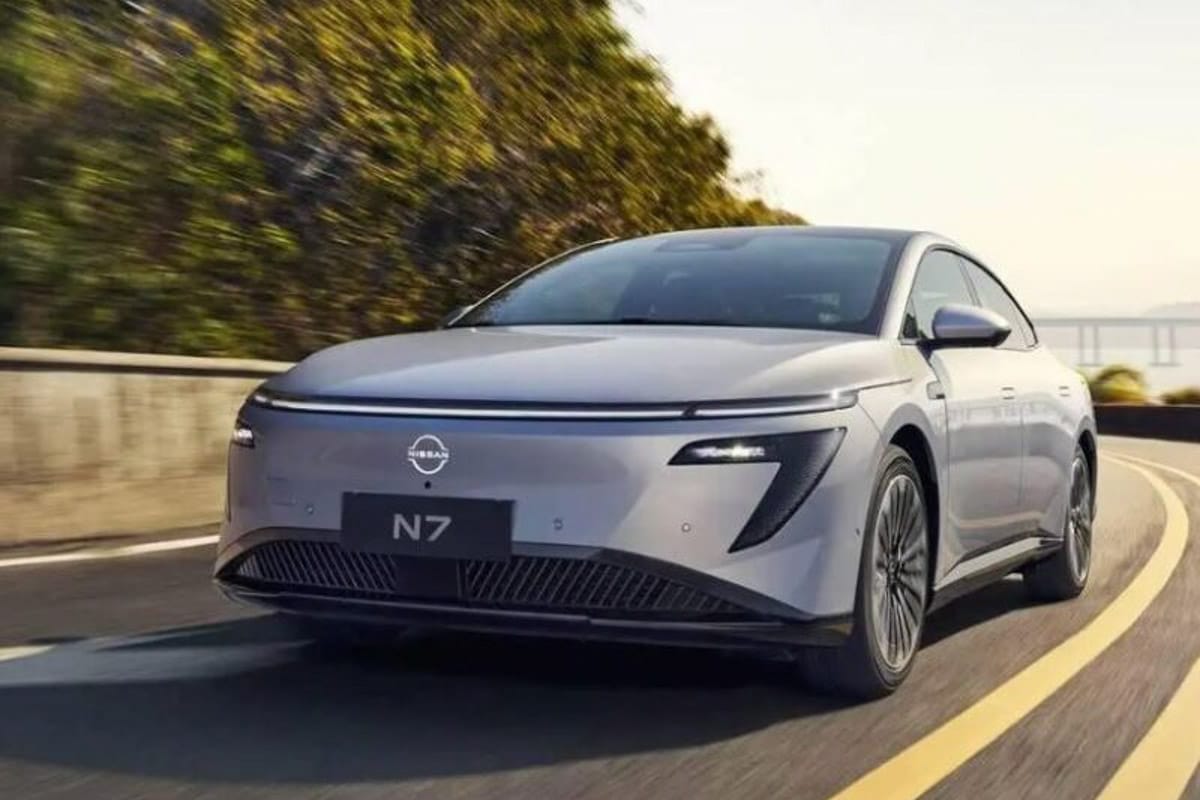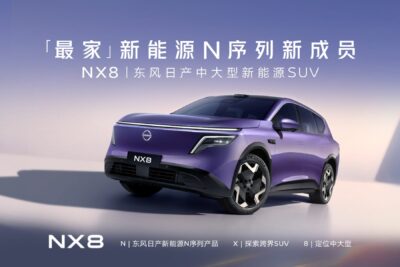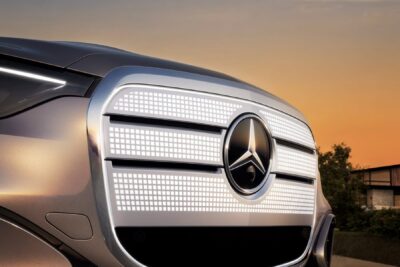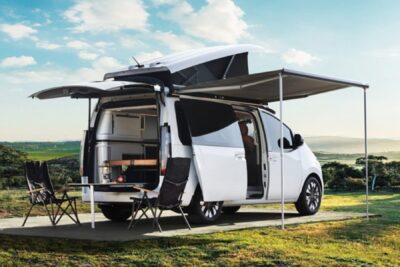Nissan considers exporting EVs from China
According to CarNewsChina, the electric sedan N7 announced in April will be one of the locally produced electric cars that will subsequently be exported. The model was unveiled at Auto Shanghai, flanked by Nissan’s announcement of an investment offensive in China: Ten billion yuan (1.2 billion euros) are to flow into China by the end of 2026. As part of this, Nissan is also planning to launch more electric and plug-in hybrid vehicles on the Chinese market, including its first electric pickup by the end of this year.
It is now becoming increasingly clear that Chinese production will not only meet domestic demand but will also spread to other regions of the world. CarNewsChina is referring to local media reports. The Japanese company is said to be planning to export electric cars from its Chinese factories to Southeast Asia and the Middle East from 2026. This step is intended to utilise Nissan’s existing customer service network in these overseas markets, according to reports. The ailing car manufacturer is currently seeking to restructure and is scrutinising parts of its production base. By selling electric cars manufactured in China to other markets, it hopes to achieve a rapid turnaround, writes the portal.
However, exporting vehicles is not enough for Nissan: The vehicle software is said to be a sticking point. The N7 contains AI technology from Chinese companies, for example. “To facilitate exports, Nissan will need to modify the software specifications due to restrictions on Chinese-made AI products in some countries,” CarNewsChina writes. To this end, Nissan has invested in the Chinese developer IAT Automobile Technology.
Nissan is also moving closer to China’s car manufacturer Dongfeng. In future, the N7 will be built by Dongfeng Nissan, and the model was also developed by the joint venture, with a lot of technology from Dongfeng. The platform of the Nissan N7 is derived from the Dongfeng 007, from which the N7 inherits its wheelbase and drive systems, as well as the body design and interior, which are Nissan’s contributions.
On 25 June, Dongfeng Motor announced the establishment of a further joint venture with NCIC (a wholly-owned subsidiary of Nissan) in order to become active in the car export business. Both sides will contribute a combined share capital of one billion yuan (around 119 million euros) to the joint venture, in a ratio of 40:60, which also corresponds to the ownership structure: Dongfeng holds 40% and Nissan 60% of the new export specialist.
While Nissan is investing heavily in China, the company wants to downsize significantly in other parts of the world by 2027. The Japanese company wants to reduce its global workforce by 20,000 employees and close seven vehicle plants. Nissan hopes that this will enable it to return to profitability in 2026.
These measures, announced in May, are part of a new reorganisation plan called ‘Re:Nissan’. The plan to cut a total of 20,000 jobs between the 2024 and 2027 financial years includes the 9,000 job cuts already announced by Nissan at the end of 2024. As things stand, this means that around 15 per cent of the workforce will be affected by the cutbacks. Nissan also plans to reduce vehicle production from 17 to ten plants by the 2027 financial year. Nissan announced the reorganisation plan, which involves severe cuts, almost two months ago when it announced its business figures for 2024.
With ‘Re:Nissan’, the company is aiming to achieve cost savings totalling 500 billion yen (around three billion euros) compared to the 2024 financial year, both in terms of fixed and variable costs. The aim is to return to profitability by the 2026 financial year, according to the management led by new CEO Ivan Espinosa, who replaced Makoto Uchida in this position in April.
Under Uchida, Nissan had slipped into a difficult situation in recent months: In the wake of the break-up of the Renault-Nissan alliance and the failed merger talks with Honda, the manufacturer is currently looking for stability, because with around three million cars a year, Nissan is considered too small in the industry to manage the upcoming transformation in the volume segment on its own. It is quite possible that Nissan wants to make itself more attractive for new partnerships with the cost-cutting measures it has now introduced. Since this week, there has been renewed talk of a cooperation agreement with Foxconn on the home market in Japan.
In addition to job cuts and plant closures, the company has already cancelled an increasing number of planned eMobility projects in recent months. These cancelled projects include an LFP battery plant in Japan. Nissan has also cancelled its model planning for North America. However, it is relatively certain that Nissan’s plant in Sunderland, UK, will continue to operate, as the car manufacturer and its former battery subsidiary AESC are currently also investing heavily in future electric car and battery production there.





0 Comments